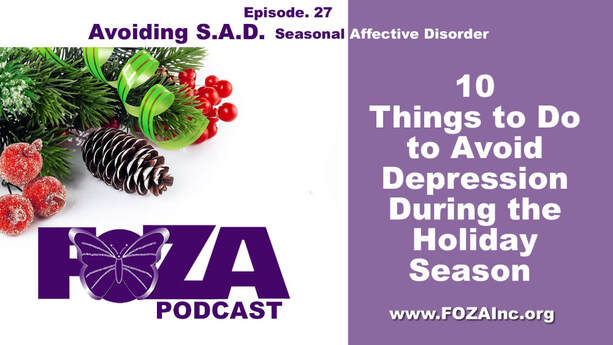Can Perinatal and Postpartum people be more sensitive to seasonal depression? YES - The period shortly before and after birth and postpartum, up to three years after a child is born, can make individuals more sensitive to seasonal depression, also known as Seasonal Affective Disorder (SAD). 1. Hormonal Changes: Both perinatal and postpartum periods involve significant hormonal fluctuations, which can affect mood and emotional well-being. The rapid changes in hormones like estrogen and progesterone can contribute to mood disorders, including SAD. 2. Sleep Deprivation and Fatigue: New parents often experience disrupted sleep patterns and chronic fatigue, which can exacerbate symptoms of depression, including those related to seasonal changes. 3. Stress and Lifestyle Changes: The perinatal and postpartum periods involve major life changes and can be highly stressful. Stress is a known risk factor for depression, and the added pressures of parenting can make individuals more vulnerable to mood disturbances during this time. 4. Reduced Sunlight Exposure: Postpartum individuals, particularly in the winter months, might spend less time outdoors due to the demands of caring for a newborn. Reduced exposure to natural light can worsen SAD symptoms. 5. Preexisting Mental Health Conditions: Those with a history of depression or other mental health issues are at higher risk for SAD. If they already have challenges with their mental health, the additional strain of the perinatal or postpartum period can make them more susceptible to seasonal depression. It's important for individuals in the perinatal and postpartum periods to be aware of the symptoms of SAD and to seek support from healthcare providers if they experience mood changes, especially during the winter months. Treatment options such as light therapy, counseling, and medication can be effective in managing SAD. Additionally, ensuring adequate support, rest, and self-care during this time can also help mitigate the risk of developing seasonal depression. ------------------------------------------------------------------- Connect with FOZA and all of our social Networks: www.FOZAInc.org Donate: www.FOZAInc.org/donate Volunteer: www.FOZAInc.org/volunteers Let us help you find resources: www.FOZAInc.org/foza-finder --------------------------------------------- Thanks for sharing hashtags ... it helps to keep awareness strong #FOZA4PPDAwareness - #TimeManagement #Listen2Moms #Share2BeAware #mom_congress #MentalHealthAwarenessMonth #PolicyCenterMMH #PostpartumHelp #MaternalMentalHealth #HealingStartsWithAwareness #Journaling4LessStress
0 Comments
Your comment will be posted after it is approved.
Leave a Reply. |
|
All Rights Reserved
|
